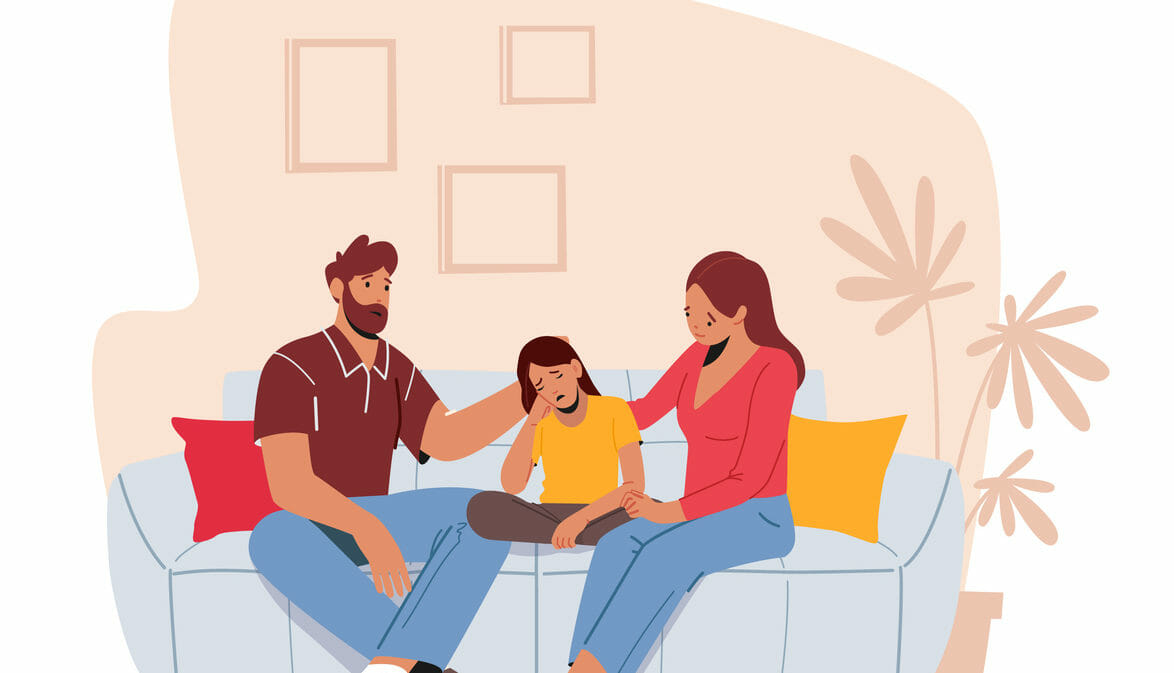Grief: Helping Children Navigate Death and Loss
Any person raising a child has wished for a magic book to tell them how to navigate parenting, especially during difficult times. After the loss of a loved one, its hard for adults to find the right things to say and do for our children, who believe we hold all the answers.

This post was written as part of a collection by LifeSource Family Support Coordinator and Licensed Counselor, Nicole Vande Weerd. Nicole shares, “Here are some tips that I’ve used in my professional and personal life to help children navigating grief and loss. It’s not a magic book, but I hope it helps.”

Normalize Feelings and Make Them Part of Your Day-to-Day Life.
As adults we often feel that we have to hide when we’re feeling sad or overwhelmed and only show love, happiness and joy. By doing this we are modeling that some feelings are okay to be shared and others we should keep to ourselves.
In my house the rule is no one has to be sad alone, if you are feeling sad tell someone and together, we will find a way to support each other maybe with some extra cuddles, maybe with a craft – it can literally be anything.
Death is sad, it can make you feel angry, hopeless and sometimes relived because you know your loved one isn’t suffering anymore. All these are normal and by modeling this to our children we teach them that we are human, these feelings are okay and it’s okay to talk about them. Most of all it sets a foundation for open non-judgmental communication.
Children Deal With, and Display Grief Differently Than Adults.
As adults we often let the full effect of grief hit us all at once. However, children (usually 10 years and younger) often let themselves experience grief in spurts because emotionally that is what they can handle. I personally think we have something to learn from kids. They know what they can handle in that moment, and they allow themselves to feel it and then they go do something they enjoy.
“There Is No Such Thing As Having Too Many Resources!”
As a parent/guardian you know and love your child better than anyone, so trust your gut if you feel they need something more than you can provide ….. GET IT!! Seek help from a school counselor, a spiritual leader, look into individual and family counseling, whatever you feel will work best for your family.
I often tell parents to think about how their little ones are doing in their social life, education, and emotionally. Some signs of a child struggling might be trouble sleeping, lack of interest in school or sports, grades dropping, and behavior changes at home that last long periods of time. Extreme changes in social, learning and emotional behavior can be good indicators that its time to seek out help.
If a child is doing fine in the areas above, but you feel they would benefit from a resource outside of what you can provide, remember my mantra!
Hugs are powerful.
There are so many studies on the power of physical touch and how it has many mental and physical health benefits. Never underestimate the power of a hug. Sometimes kids just need a time out and to be held.
In my home when I am struggling with my child’s behavior, I ask “Would you like to hug for 2 minutes?” It never fails to help, not only does it calm my child down, it makes me feel better too.
Sometimes feelings are overwhelming and a time out to feel loved and cared for is exactly what’s needed.
 Skip to main content
Skip to main content
